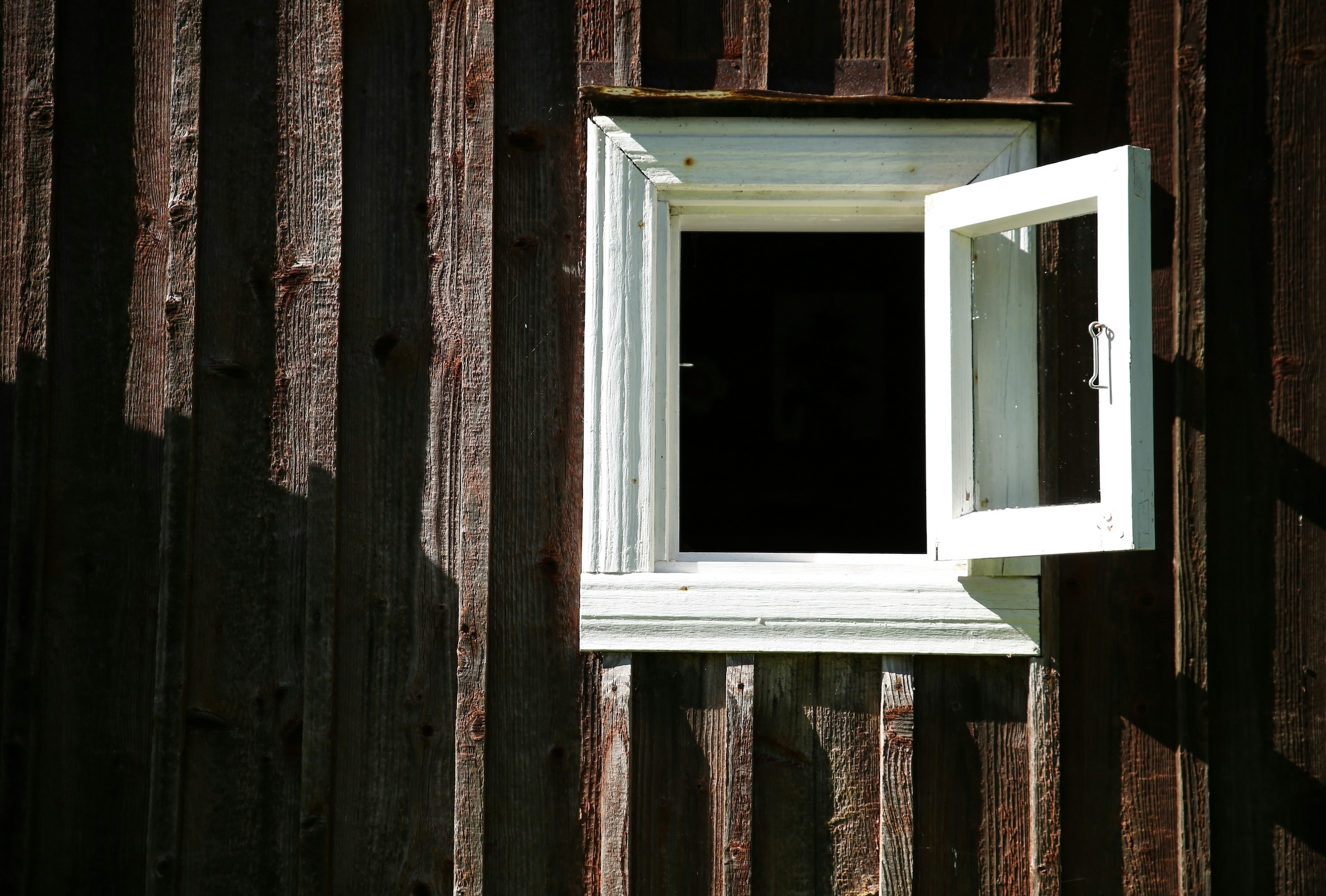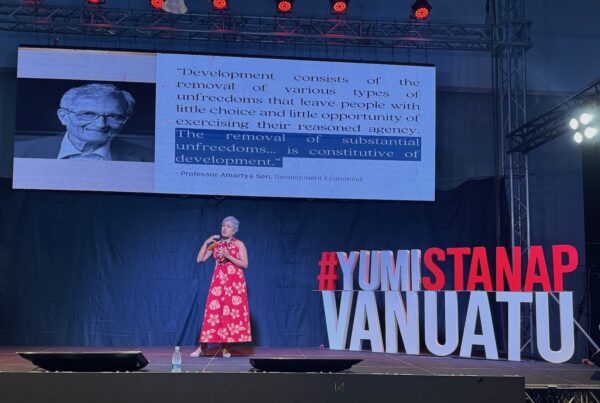By Peter Judge
There is no doubt that the world will look drastically different in 2050. Technology is changing faster than ever. Wars, coups, and conflict are surging. Democracy is in retreat. Countries all over the world are struggling to cope with demographic changes.
For Vanuatu, current forecasts expect there to be 588,000 people by 2050. There are serious questions about where these people will live, whether there will be sufficient basic necessities, and whether people will have the skills and opportunities to thrive.
And then of course there is the climate crisis. Vanuatu is on the front line of this, with last year’s three massive cyclones all too stark a reminder that it is already here.
Parliament has declared climate emergency. The Minister of Climate Change describes it as “an existential threat”. The Intergovernmental Panel on Climate Change has said that there is “a rapidly narrowing window of opportunity to secure a viable and sustainable future for all”.
Another way of putting this is it’s now or never – so how are we doing?
The most basic metric to look at is GDP. It is a highly flawed measure, but it has its merits. Firstly, countries need a minimum level of income to be able to provide a high enough quality of services-research suggests it is about US $10,000/capita (VUV 1,200,000). Secondly, building resilience and responding to disasters costs money particularly important in the context of the climate crisis.
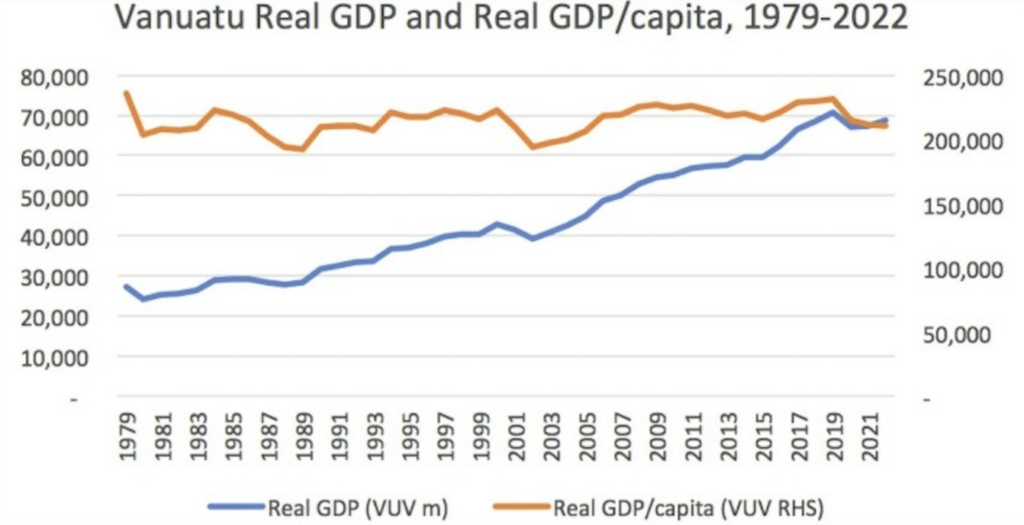
However, while Vanuatu’s GDP has increased over the past decades, real GDP/capita has stagnated around VUV 230,000, with the World Bank estimating it was just 3% higher than 1980 in 2022 (VUV 210,397). This is simply not high enough to future proof the economy and allow everyone to thrive.
If Vanuatu wanted to achieve real GDP/capita of USD 10,000 by 2050, then (if the population forecasts are correct) real GDP growth needs to be roughly 7.5% annually. The IMF currently forecasts growth of around 3% for the next decade, only slightly higher than population growth.
Merchandise exports, excluding kava and ‘other products’, are down 69% compared to 2014. Manufacturing is down 27% in real terms over the past decade. Fuel imports were 87% higher than merchandise exports in the first 11 months of last year. Fresh produce at the markets is increasingly expensive -some hotels are resorting to imported fruit instead of tropical fruits.
There is a shortage of skilled construction workers and materials are expensive. Rural tourism numbers are at just 40% of their 2019 levels, with many operators saying that the quality they were able to offer wasn’t at the same level. Tourism on Efate is doing okay, but across the waters Fiji is booming, with many operators feeling it is a major missed opportunity.
Air Vanuatu – whose importance is hard to overstate – continues to have major operational and reputational issues. This is actively harming new investment, hurting businesses, and stopping some of the basic blocks of development from reaching the islands – for example water/solar installation businesses are wary of flying.
The costs of doing business have sharply risen – fuel, electricity, wages, building materials, food, and domestic transport have all experienced substantial increases. Inflation was 14% in the year to June 2023.
The ease of doing business is also a major challenge. Businesses interviewed had limited faith in the Government, with the political instability last year highly damaging. This was across all types and location of businesses. Many felt that there was no clear policy direction, and the manner in which some policy changes have been announced have further eroded trust. There are an ever-increasing number of fees and charges, even as many businesses felt the quality of services was declining. Among businesses access to skilled staff continues to be a common issue. This ranges from the most basic skills up to senior managerial roles. This is being exacerbated by many of the more motivated workers leaving for seasonal work, while education, the bedrock of development, is not good enough. Just 21% of children in year 4 met the minimum standard for literacy in the most general assessment.
Much of the money in economy increasingly comes from government expenses (up 217% from 2014, much of it funded by Citizenship schemes), aid (up 169%), and remittances (up 921%). In combination, over this period, they grew by 245% and as a proportion of GDP have risen from 43% to 69% (this is different from their contribution to GDP).
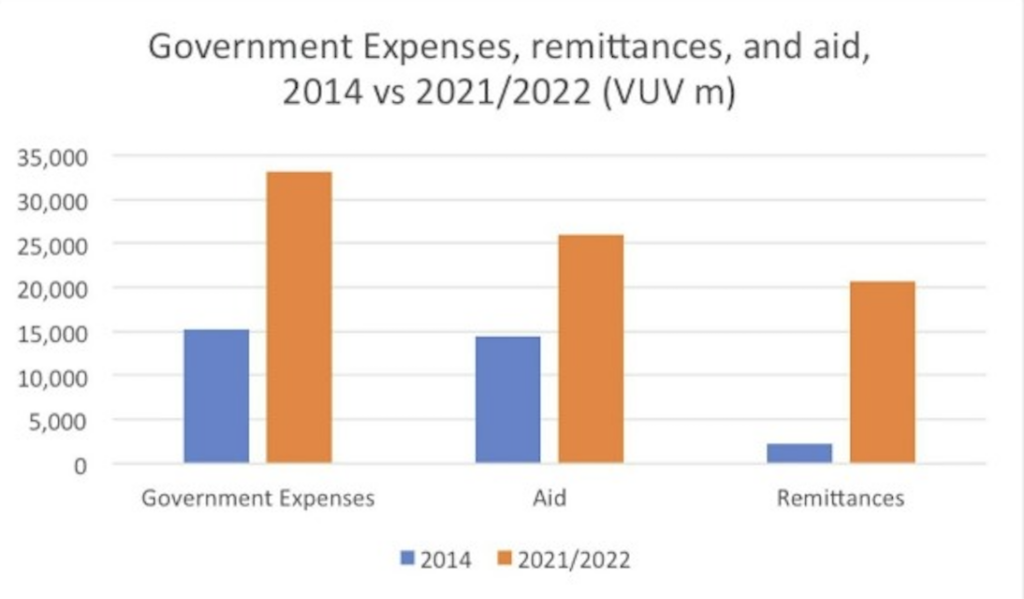
These helped turn the economy around after the 2008 financial crisis, and they allowed Vanuatu to wheather the impacts of COVID-19 astonishingly well. But they do not directly boost productive capacity and leave Vanuatu vulnerable to shocks. This is where the private sector is needed. New investment remains low – particularly foreign investment. A number of businesses are engaging in postponing recovery spending, but it is unclear how long that will last. The most common un sub-sector for investment identified in the VCCI report was retail, which has limited benefit for boosting productive capacity (how many goods and services a country can produce).
But there is also an immense case for optimism. At a global level, we are the first generation that can build a sustainable world. Emerging technologies offer the chance to completely transform both society and the business environment – renewable energy and the digitisation of services should lead the way. There are a lot of dedicated people working very hard for a better future. Vanuatu also has many wonderful traits, which means it could be a global leader in sustainable development. This will take a lot of dedication, direction, and work.
The aim should be for all stakeholders – the government, businesses, workers, society, and donors – to work towards a shared vision of economic growth, increased prosperity, service delivery and quality education for all, supporting the health and growth of communities and helping to put Vanuatu on the pathway of sustainable development.
From an economic perspective, major changes are needed to the business environment. Similarly, many businesses have to improve their quality, including moving to a point where they are both able and willing to pay staff more.
With the hope of sparking practical debate and further ideas, over the coming weeks there will be a series of further articles published on taxation policy, employment terms, energy policy, government services, the primary sector, and monetary policy. Some of the ideas will be controversial, but with so much changing so fast, Vanuatu must be open to doing things completely differently to build that better future.
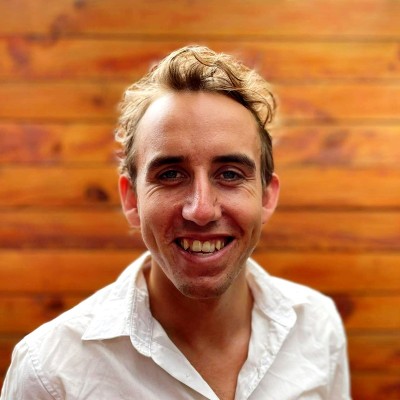
This is part of a series of articles by Peter Judge, Director of Economics and Research at Pacific Consulting Limited and author of the recent VCCI Private Sector Economic Outlook. The purpose of the series is to spark debate and further ideas, noting much more work is needed. All views expressed are solely his own.


